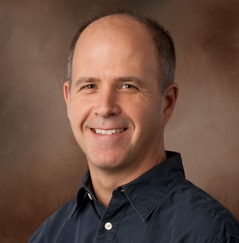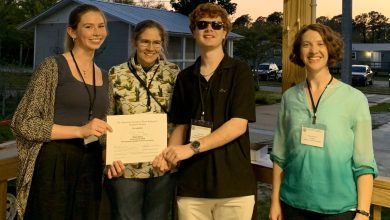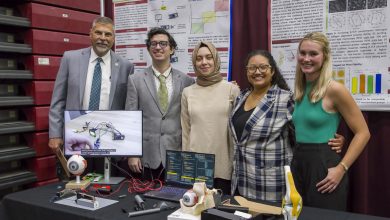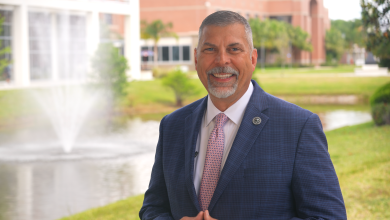What We Can Learn From Cheating
eEducation Lecture Feb. 23 Focuses on Academic Dishonesty
MELBOURNE, FLA. — James Lang will discuss his new book, Cheating Lessons: Learning from Academic Dishonesty, at a free public lecture at 2 p.m. Monday, Feb. 23 in the Hartley Room at the Denius Student Center as part of Florida Institute of Technology’s eEducation lecture series.
Lang is a professor of English and director of the Center for Teaching Excellence at Assumption College in Worcester, Mass. His is a columnist for The Chronicle of Higher Education and the author of four books. His most recent, 2013’s Cheating Lessons, examines how when students engage in academically dishonest behaviors, they may be responding to subtle pressures in the learning environment that interfere with deep learning and nudge them toward cheating.
Lang argues that if educators can better understand the reasons for academically dishonest behavior, they can use that knowledge to build better learning environments.
His Feb. 23 lecture will review current statistics on cheating in higher education, consider the role of the learning environment in influencing academic integrity, and offer practical suggestions for how to create learning environments that foster intrinsic motivation, facilitate active learning and create a growth mindset in students.
In addition to his role as teacher, author and Chronicle columnist, Lang’s book reviews and public scholarship on higher education have appeared in a wide variety of newspapers and magazines, including the Boston Globe, Chicago Tribune and Time. He is a member of the Fulbright Senior Specialist roster in higher education, and has conducted workshops on teaching for faculty at more than 50 colleges or universities in the U.S. and abroad. He has a bachelor’s degree in English and philosophy from the University of Notre Dame, a master’s degree in English from St. Louis University, and a Ph.D. in English from Northwestern University.
For more information on Florida Tech’s eEducation lecture series, contact University Professor Mary Bonhomme at bonhomme@fit.edu or (321) 674-8883.
###





